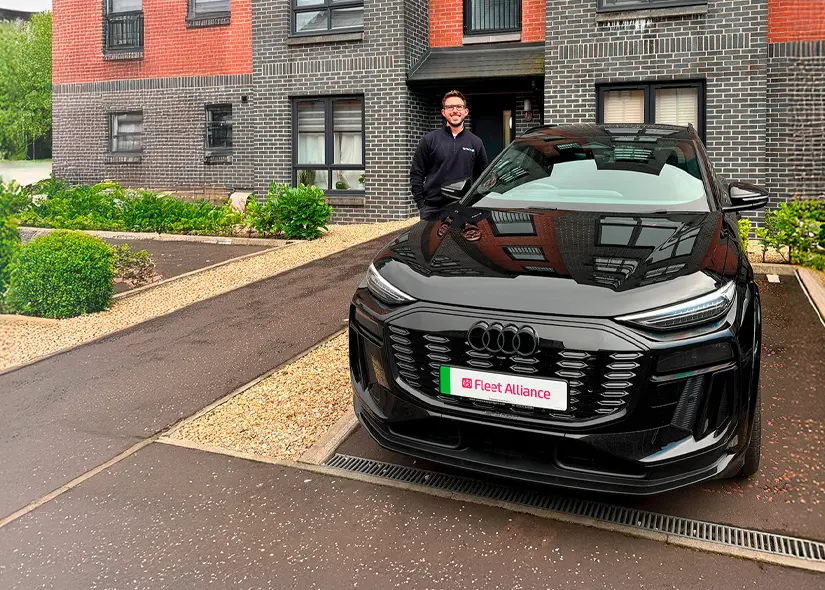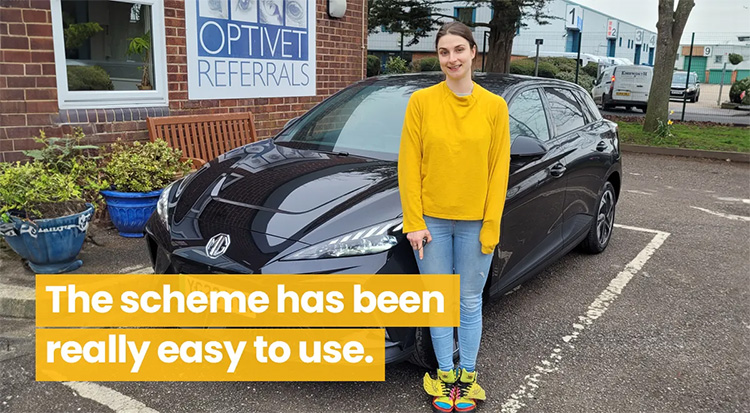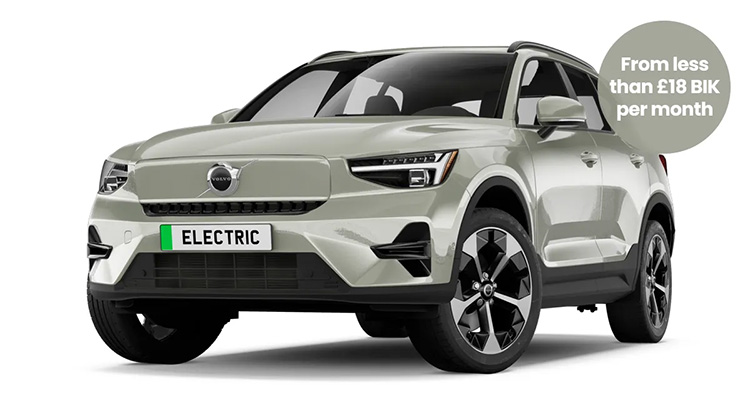S h a r e
Salary Sacrifice Car Scheme: Updated UK Guide (2025/26)

Posted by
Charlie Strand
October 2025
Quick facts (updated Oct 2025)
- EV BiK: 3% (2025/26), 4% (2026/27), 5% (2027/28), then 7% in 2028/29 and 2029/30 to 9%.
- PHEV BiK: rises to 18% (2028/29) and 19% (2029/30) (most bands), so EVs keep the tax edge.
- VED for EVs (from 1 April 2025): £10 first year, then standard rate (currently £195); Expensive Car Supplement applies over £40,000.
- Compliance: Salary sacrifice must not reduce cash pay below National Minimum Wage (NMW) and requires a formal contract variation.
What is a salary sacrifice car scheme?
A salary sacrifice car scheme lets an employee reduce their gross (pre-tax) pay in exchange for the use of a vehicle. Because the deduction happens before tax and National Insurance (NI), employees usually make big saving (up to 60% for EVs) versus a like-for-like personal lease. The car is treated as a Benefit-in-Kind (BiK) for company car tax; Battery Electric Vehicles (BEVs) attract the lowest BiK rates, with plug-in hybrids (PHEVs) typically higher and rising faster after April 2028.
How does it work?
- Employer partnership: Your business partners with a provider (e.g., Fleet Alliance) to offer eligible cars via payroll.
- Employee chooses a car: The gross deduction covers the lease and bundled services.
- All-inclusive package: Typically includes maintenance, insurance, breakdown and road tax, so most running costs are fixed.
- Payroll & compliance: Deductions are taken before tax/NI. Ensure pay never drops below NMW and that a contract variation is in place.

Why EVs tend to deliver the biggest savings
- Lowest BiK today and through 2029/30: EV BiK is 3% in 2025/26 and steps up gradually to 9% by 2029/30 — still far below most petrol/diesel rates.
- Mind the PHEV step-up: From 2028/29, most PHEV bands move to 18–19%, shrinking the gap to ICE. If you plan a 4-year term crossing April 2028, model this in advance.
- VED changes from April 2025: EVs now pay VED (including the Expensive Car Supplement above £40k), so factor this into comparisons — it’s usually included in your bundle.
GOV.UK
Thinking PHEV? Check the post-2028 BiK bands before you choose a term that crosses into 2028/29 or 2029/30.

The key benefits
For employees
- Tax & NI efficiency: Pay from gross salary, then small BiK on EVs.
- All-inclusive convenience: Insurance, maintenance, breakdown and VED are usually covered.
- Affordable access to EVs: Lower BiK + pre-tax deductions make many EVs cheaper than a personal lease.
- Sustainability: Cut tailpipe emissions and support your company’s ESG goals.
For employers
- Cost-neutral benefit: Often employer NIC savings offset admin costs; present this in your business case.
- ESG impact: Accelerates fleet electrification and Scope 1 reductions.
- Talent: Attractive, modern benefit with strong employee uptake.
Important considerations (read before you launch)
- Impact on other entitlements: Lower contractual salary can affect pension contributions and certain statutory payments; communicate this clearly in employee comms.
- NMW safeguard: Deductions must not take cash pay below the National Minimum Wage.
- Leaving or life events: Define what happens on resignation, redundancy, maternity/paternity leave, long-term sick leave and end-of-term damage/excess mileage. Offer early-termination protections where appropriate.
- Documentation: Implement a contract variation and keep payroll configs, caps and audit trails aligned with HMRC guidance.
Fleet Alliance are highly experienced in customising salary sacrifice schemes to meet your exact business or employee requirements. Schedule a call with us today – we’d be delighted to assist.
For employers: Our seven-step launch checklist
- Select an experienced scheme provider & policy scope (eligible roles, car types, terms).
- Review and confirm your compliance requirements (NMW checks, salary caps, credit policies).
- Contractual paperwork (formal variation of contract; employee agreement).
- Payroll setup (pre-tax deductions; BiK reporting).
- Risk protections (early termination, life events).
- Employee comms & FAQs (use worked examples by tax band).
- Measure & iterate scheme performance (uptake, NIC savings, CO? reduction).
How Fleet Alliance can help
Fleet Alliance delivers a compliant, EV-first salary sacrifice scheme with market-leading tech, employee comms, and flexible life-event protections. We’ll model net-of-BiK savings for each tax band and provide an employer business case showing NIC savings and CO2 impact. We also work with with 1,000s of businesses across the UK, from SMEs to FTSE 500 organisations.
Get started today — book a short demo of our award-winning portal and see how much your team could save.
FAQs
- Does salary sacrifice reduce my pension or statutory benefits?
Potentially. Because your gross salary is lower, percentage-based contributions (e.g., pension) and some statutory entitlements may reduce. Many employers adjust their scheme or make top-up contributions to keep outcomes fair — check your policy. - Can my pay drop below the National Minimum Wage?
No. Employers must cap deductions so your cash earnings never fall below NMW at any time. - What BiK will I pay on an electric car?
EV BiK is 3% in 2025/26, 4% in 2026/27, 5% in 2027/28, then rises to 7% (2028/29) and 9% (2029/30). Multiply this percentage by the car’s P11D value to find the taxable amount, then apply your income-tax rate.
- What about plug-in hybrids?
Most PHEV bands increase to 18% in 2028/29 and 19% in 2029/30 — often much higher than EVs by then. - Do EVs still pay zero road tax?
No. From 1 April 2025, newly registered EVs pay £10 in year one and then the standard VED rate from year two; the Expensive Car Supplement applies above £40,000. - What happens if I leave the company or go on parental leave?
Your employer’s scheme rules apply. Many providers offer early-termination and life-event protections — check the policy before ordering. - Is insurance and maintenance included?
Yes, schemes typically bundle insurance, servicing, tyres, breakdown and VED, so your monthly cost is predictable.

